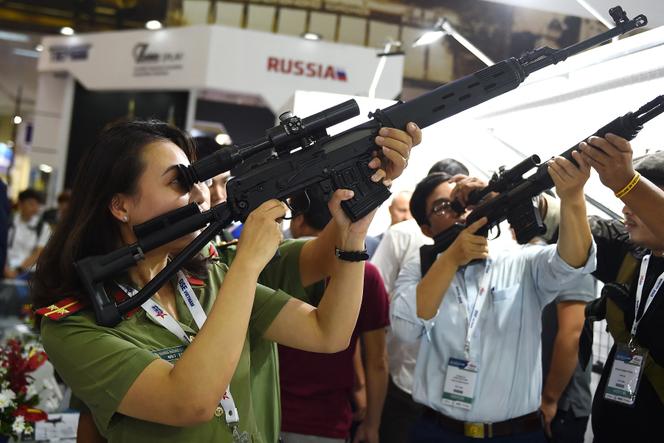
Russia, the world's second largest arms exporter after the United States, has long been the leading supplier to Southeast Asia. Since 2000, it has sold $10.7 billion (10.1 billion euros) worth of weapons to the region, more than the US, the European Union and China. However, this relationship began to falter in 2014 after Moscow's annexation of Crimea, and now the war in Ukraine may significantly challenge it.
According to Ian Storey, a researcher at the Iseas-Yusof Ishak Institute in Singapore, the Russian military's difficulties in the Ukrainian battlefield – along with the economic sanctions and export restrictions imposed on Russia since the conflict began on February 24 – have tarnished the reputation of the country's military industry. "Before the war, Russian weapons were considered robust, strong and suitable for Southeast Asian countries. But seeing the Russian military equipment destroyed in Ukraine will make these countries reconsider their purchases," said Mr. Storey, a specialist in security issues in Southeast Asia.
Russia used to be the preferred supplier to the region because its military equipment was more affordable than that of its Western competitors, its payment methods were more flexible and it overlooked human rights in contracts. But now, "buying Russian weapons has become a risky bet," said Mr. Storey.
Russian defense industry exports to Southeast Asia began to decline in 2014, with the annexation of Crimea and the implementation of Western sanctions. Vietnam, the region's largest importer, also paused its military modernization program at that time. And in 2017, the US Congress passed a law allowing the government to impose sanctions on countries buying weapons from Moscow – the Countering America's Adversaries Through Sanctions Act. "It's a constraint for Southeast Asian countries. They now have to take that risk into account if they want to buy weapons from Russia," said Carlyle Thayer, professor emeritus at the University of New South Wales in Australia.
Toward more 'reliable' sources
As a result, Russia's arms sales to Southeast Asia have plummeted from $1.2 billion in 2014 to just $109 million in 2021, according to the Stockholm International Peace Research Institute. That drop is expected to continue due to the sanctions imposed on Russia since the invasion of Ukraine. According to Mr. Thayer, "doing business with Russia has become difficult. The country is now ostracized, even toxic."
In Mr. Storey's opinion, Southeast Asian countries might turn to more reliable sources for weapons supplies, such as Europe, Israel, Turkey or South Korea. The researcher does not rule out the possibility that some will turn to China, despite the conflicts in the South China Sea in which five countries in the region (Vietnam, Malaysia, Indonesia, Philippines and Brunei) are involved. Malaysia and Indonesia are the least involved in these disputes and might thus be tempted.
You have 24.82% of this article left to read. The rest is for subscribers only.